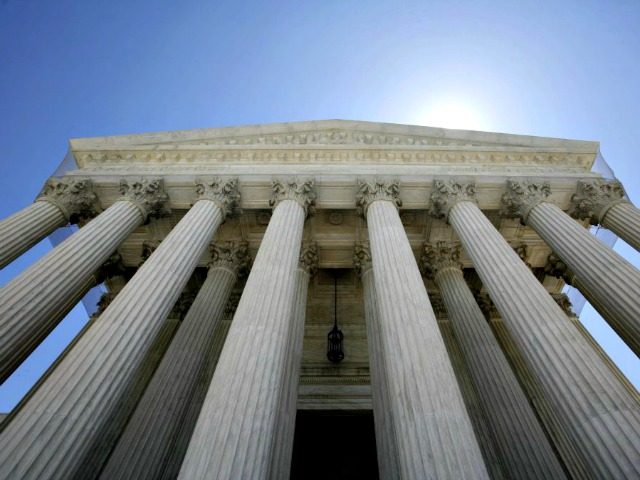WASHINGTON, D.C.—The Supreme Court took the rare step on Friday of expediting consideration of a major case, rapidly accelerating the schedule for reviewing the Fourth Circuit’s blocking of President Donald Trump’s travel ban executive order.
President Trump issued Executive Order 13780 (EO) on March 6, Section 2(c) of which temporarily restricted travel from six Muslim-majority countries associated with terrorism while the United States developed new vetting procedures to keep the nation safe.
Immigration activists sued, along with several immigrants and their families. A liberal federal district judge in Maryland granted a preliminary injunction blocking Section 2(c) of the EO. The U.S. Court of Appeals for the Fourth Circuit then affirmed the trial court’s injunction in a 10-3 decision, ruling that the EO violated the Constitution’s Establishment Clause, and taking the almost unheard-of step of all the court’s judges hearing the case, instead of sending it to a three-judge panel.
The U.S. Department of Justice (DOJ) filed a petition for review at the Supreme Court on Thursday. Under the Court’s rules, a response from the plaintiffs would be due July 3. By that time the Court would be on recess for the summer, meaning that the justices would vote at the Court’s annual pre-Term conference, which will take place on September 25, on whether to take the case. That would typically mean hearing arguments in December or January, with a final decision coming down in early or mid-2018.
Acting Solicitor General Jeff Wall at DOJ also asked Chief Justice John Roberts (who supervises the Fourth Circuit) to stay the appellate court’s decision until the justices can decide the matter.
On Friday, the Supreme Court rapidly expedited everything. The ACLU—which represents the plaintiffs—have been ordered to file their response by 3:00 p.m. on Monday, June 12. The ACLU lawyers must also respond to DOJ’s application for a stay by that time.
The Court could conceivably then vote immediately on whether to take the case, or anytime shortly thereafter. Under a normal briefing schedule, the Court would then hear arguments in October, and issue a decision by the end of 2017.
It’s also possible that the Court could accelerate briefing on an emergency basis, then hold arguments over the summer, or possibly even in June before recessing for the summer. The Court could make clear by the week of June 12 which course it is pursuing.
The case is Trump v. International Refugee Assistance Project, No. 16-1436.
Ken Klukowski is senior legal editor for Breitbart News. Follow him on Twitter @kenklukowski.

COMMENTS
Please let us know if you're having issues with commenting.